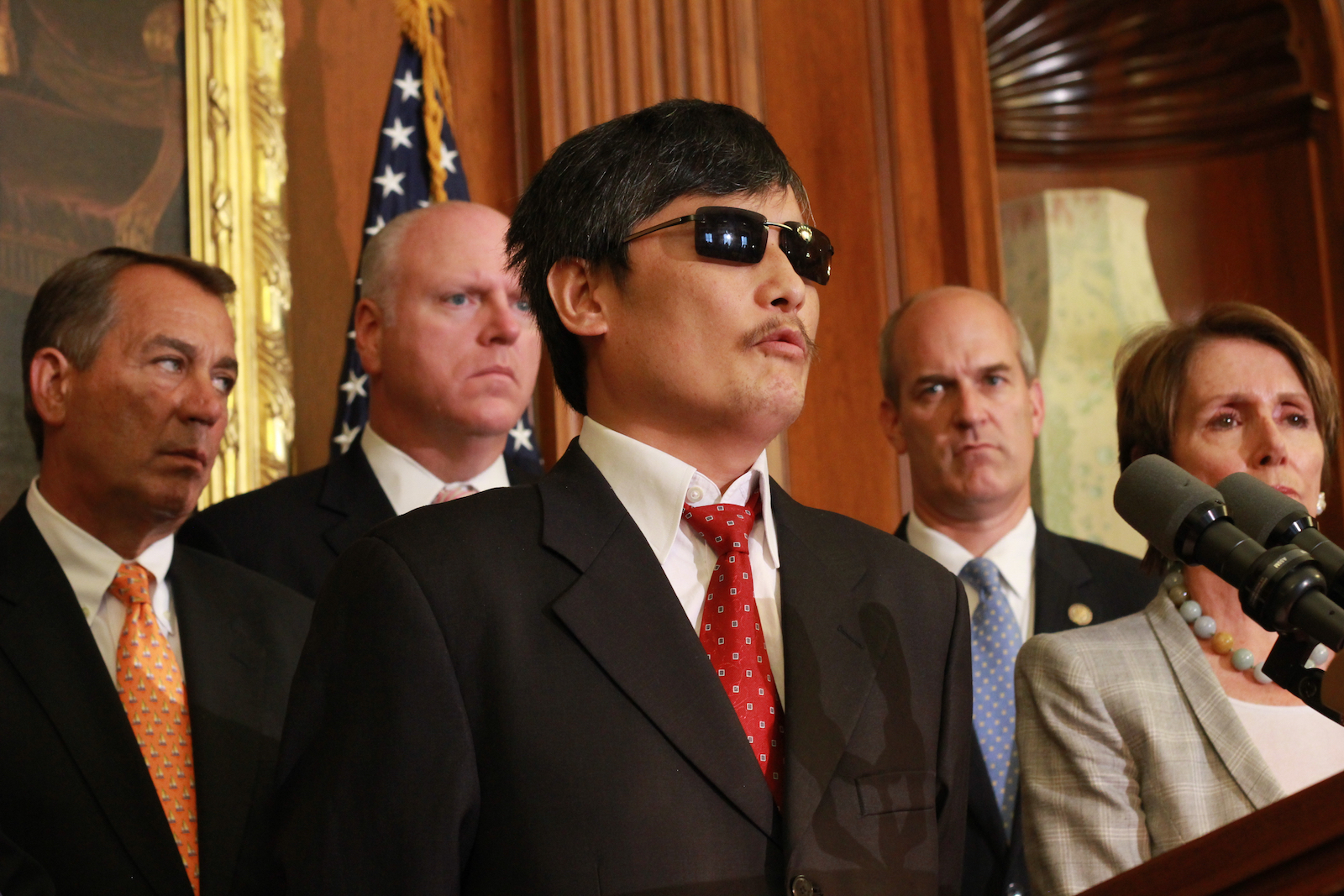
Chen Guangcheng: A Different Diplomatic Approach
The recent “crisis” over Chen Guangcheng’s flight to the U.S. embassy raises questions about U.S. diplomatic statecraft. Granted, this all went down quickly without warning, but one would think that a situation like this had at some point been “gamed” by the State Department so that a general response would have been in place. Chen was known for his stand against government policies of forced sterilization and his support of rights of the disabled (such as the blind). After his release from prison on charges of destroying property and illegal assembly Chen was held under illegal house-arrest by local officials.
Chen did not strike out against the legitimacy of Communist party rule but against government policies and their enforcement. In fact, the New York Times reported that Chen “appealed to Prime Minister Wen Jiabao to investigate and halt the abuse of his family.” Mr. Chen is a Chinese citizen who loves his country and struggles for a way to change national policy. His original request was to remain in China in a province other than Shandong where he was persecuted. Because of the way this played out, he will instead be pursuing a fellowship in the United States.
The disconnect between federal and local officials is well understood in the United States, going back to Washington’s march against the Whiskey Rebellion, the Eisenhower administration sending troops to Little Rock, and calling out the national guard during urban riots in the late 1960s.
We clearly understand that in the United States, all levels of government may not agree and in some cases, are in clear and violent opposition.
We need to recognize that the same dissonance operates in China; it is one of the key issues that Chinese national leaders struggle with. The recent stand-off in Wukan is one example. With taxes going to the central government, local governments have been selling land as a means to raise local revenues. Rural landowners were paid a small fraction of what developers pay the government.
In Wukan, the “village cadre” rose in armed protest against local officials actions around development. Guandong provincial official resolved order in the township, forestalling the central government sending in troops. In many cases such as this, the local citizens appeal to provincial and central governments for help.
The United States could have played on this disconnect between local and national policies. U.S. official might have given Chen “sanctuary” against the local officials who were persecuting him, and offered national officials the face-saving device of responding to locals who “acted out of place.” This could have placed China and the United States on the same side in the struggle against oppression.
Is it accurate to believe that national officials did not know about Chen? Doubtful, but with a country of 1.2 billion people, the central government is hard-pressed to solve every local issue. U.S. sanctuary from the local government offers a graceful resolution that could have protected Mr. Chen and his family while putting the onus on local government helps the central government’s image. It might also have offered a way forward that would allow Mr. Chen to remain in China in a way that could support change in central Chinese policy.

